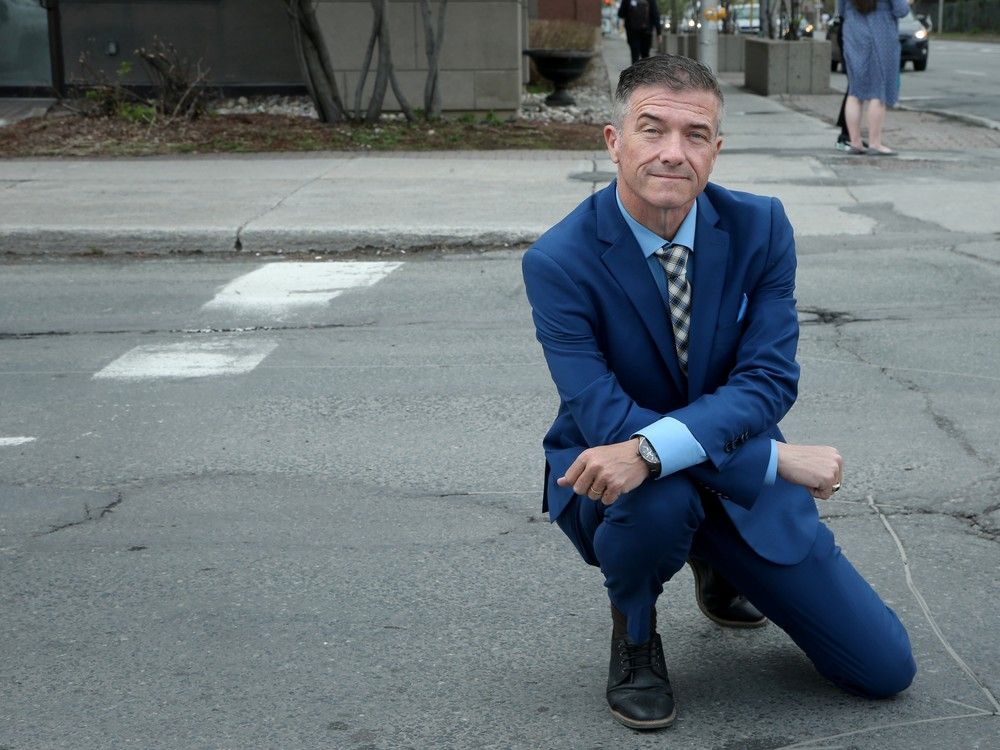An Ottawa city councillor is hoping the federal government will commit more resources to help municipalities ahead of Tuesday’s throne speech.
King Charles III is scheduled to open a new session of parliament on Tuesday instead of Governor General Mary Simon, years after his mother, Queen Elizabeth II, did in 1957 and again in 1977. This will also be the king’s first royal visit to Canada, marking the Royal Family’s connection to the commonwealth nation.
The throne speech is intended to highlight the federal government’s goals for the new parliamentary session. It comes days after Prime Minister Mark Carney published a mandate letter to his cabinet ministers, highlighting a “generational challenge.” In the letter, Carney wrote that the new federal government has an “immense responsibility” to address geopolitical and economical challenges.
Tim Tierney, Beacon Hill-Cyrville ward councillor and vice-president of the Federation of Canadian Municipalities, hopes to see commitments to help municipalities in the throne speech. That includes touching on key issues such as housing, infrastructure and community safety.
“We were watching very closely throughout the federal campaign. We noted who mentioned municipalities. I think that’s critical,” Tierney said in an interview with the Ottawa Citizen.
“Municipalities need our help. Municipalities will help drive employment and a lot of local infrastructure investment, along with investment in policing.”
Here’s what the City of Ottawa is hoping to hear from the throne speech on Tuesday.
Commitments to housing and affordable housing
Tierney wants the federal government to expand affordable housing funding to include infrastructure costs in Ottawa, not just the houses and units themselves.
Last February, the federal government awarded Ottawa with $176.3 million through the Housing Accelerator Fund to create more housing supply at an accelerated pace. This includes goals to create 5,700 to 8,500 affordable housing options between 2024 and 2027 through new units and housing subsidies.
But Tierney said the construction funding isn’t enough.
“In the past, there were always announcements, but the money wasn’t flowing. It was great that they wanted to give municipalities money, but then they also said municipalities are going to pay for all the infrastructure,” he said.
Tierney also said more needs to be done to drive down housing costs in Ottawa, where the median price for a single-detached home is around
$790,000.
Carney and federal Housing Minister Gregor Robertson previously told reporters they don’t think housing prices should go down. Instead, they said the government needs to build more supply and make sure the housing market is stable.
“We always have to separate the two: affordable housing and affordability in general. Building more homes to be able to get more inventory into municipalities, to bring down some of the pressure on the costs … there’s a lot of concern,” he said.
“That requires some help from the federal government to be able to get more units on the market to help lower those prices.”
More funding for community safety resources.
According to Tierney, a multi-pronged approach is needed to address community safety in Ottawa and municipalities across Canada. One of those approaches is having transit police to help transit users feel safe and encourage more people to use transit.
Another approach is bail reform, which includes re-evaluating bail availability for offenders charged with serious crimes.
It also includes re-evaluating bail availability for repeat offenders.
Carney previously promised to make bail laws stricter for violent and organized crime as well as home invasions and human trafficking, especially for repeat offenders.
“It’s the first time in 15 years I’ve seen bail reform, oddly enough, as one of the top priorities,” Tierney said.
“We really look forward to the details and what that means … Maybe more money for policing, especially the RCMP, which do a lot of work outside of the Ottawa area where you have smaller municipalities that can’t afford the policing.”
Resources for infrastructure maintenance
Ottawa needs more money to help build, repair and maintain its infrastructure, such as roads and water mains.
Tierney said the federal government has always given Ottawa money for big and new investments, such as new electric buses and trains to reduce greenhouse gas emissions from public transit.
But he said Ottawans are starting to notice a decline in basic infrastructure, and many are afraid that disasters like
Calgary’s water main break last year
may happen in the city.
“(The federal government has) always dealt with those shiny, great investment things, but now you’re seeing a lot of the stuff that certainly they need to pay attention to as well: roads, sewers, definitely bridges,” he said.
“These are a lot of the local things that (residents) see every single day.”
This is especially important because city staff and councillors are often the first people residents go to voice concerns, Tierney said.
“A lot of people don’t even know who their MP is, or they don’t know their MPP. They come to us and we help sort it out,” he added.
“They always come to the front door of councillors and mayors, and we’re kind of like the routing system for them, so we have a really good working relationship (with residents and the federal government).”
Our website is your destination for up-to-the-minute news, so make sure to bookmark our homepage and sign up for our newsletters so we can keep you informed.
Related
- Tamarack Race Weekend greets more than 36,000 participants
- City committee to debate whether to allow alcohol in parks



